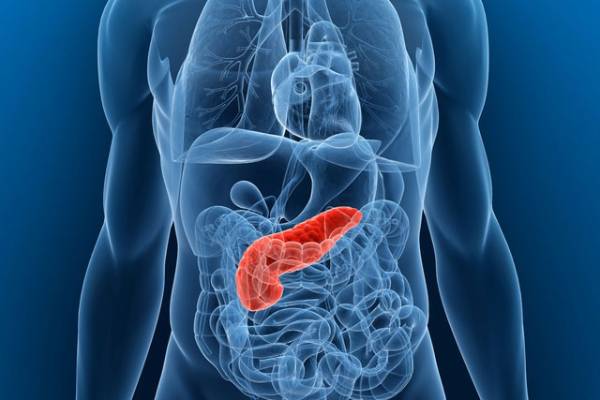Pancreatic cancer, also known as pancreas cancer, is a malignant tumor that originates in the pancreas, a vital organ located behind the stomach. The pancreas plays a crucial role in digestion and regulating blood sugar levels by producing digestive enzymes and insulin. Pancreatic cancer is known for its aggressive nature, as it often goes undetected until it has reached an advanced stage. Here are some key points to understand about pancreatic cancer:

Causes of Pancreatic Cancer:
- Smoking: Cigarette smoking is a major risk factor for pancreatic cancer. Smokers are more likely to develop the disease compared to non-smokers.
- Family History: A family history of pancreatic cancer or certain genetic syndromes can increase an individual’s risk.
- Diabetes: Chronic diabetes is associated with an increased risk of pancreatic cancer.
- Chronic Pancreatitis: Long-term inflammation of the pancreas, known as chronic pancreatitis, can raise the risk of developing cancer in the pancreas.
- Certain Gene Mutations: Inherited genetic mutations, such as BRCA1, BRCA2, and PALB2, are linked to an elevated risk of pancreatic cancer.
Symptoms of Pancreatic Cancer:
The signs and symptoms of pancreatic cancer may include:
- Jaundice: Yellowing of the skin and eyes due to the blockage of the bile duct by the tumor.
- Abdominal Pain: Persistent, often deep-seated pain in the upper abdomen or back.
- Weight Loss: Unexplained weight loss is common in individuals with pancreatic cancer.
- Changes in Stool Color and Consistency: Light-colored, greasy, or foul-smelling stools can occur due to impaired digestion.
- Loss of Appetite: A decrease in appetite, along with nausea and vomiting, can be symptoms of pancreatic cancer.
Diagnosis and Treatment of Pancreatic Cancer:
Diagnosis of pancreatic cancer typically involves a combination of tests, including:
- Imaging Tests: These may include CT scans, MRI, and ultrasound to visualize the pancreas and detect any tumors.
- Blood Tests: Specific markers in the blood, like CA 19-9, may be elevated in pancreatic cancer.
- Biopsies: A tissue sample from the pancreas is collected and examined to confirm the diagnosis.
Treatment options for pancreatic cancer depend on the stage and extent of the disease. They may include:
- Surgery: Surgical removal of the tumor is an option for localized cancer. The Whipple procedure, performed by specialists like Dr. Keerthi, is a complex surgery that involves removing a portion of the pancreas, the duodenum, and other nearby structures.
- Chemotherapy: Chemotherapy drugs are used to kill cancer cells or slow their growth. They can be administered before or after surgery, depending on the situation.
- Radiation Therapy: High-energy X-rays are used to target and destroy cancer cells.
- Targeted Therapy: Targeted drugs are designed to target specific molecules or pathways involved in cancer growth and may be used in conjunction with chemotherapy.
- Palliative Care: This focuses on improving the quality of life for patients by managing pain and symptoms, enhancing comfort, and providing emotional support.
Pancreatic Cancer Survival Rate:
The survival rate for pancreatic cancer is relatively low, primarily due to its aggressive nature and the difficulty of early detection. The 5-year survival rate for pancreatic cancer is less than 10%, and it varies depending on the stage at diagnosis. When the cancer is localized and can be surgically removed, the survival rate is higher than for advanced-stage cancers.
Early Detection and Prevention:
Early detection is challenging, as symptoms often appear late in the disease’s progression. However, regular check-ups, especially for those with risk factors, can help detect the disease at an earlier stage. Smoking cessation, maintaining a healthy weight, and managing diabetes can also reduce the risk of developing pancreatic cancer.
Summary:
Pancreatic cancer is a challenging and aggressive disease that can have a significant impact on a patient’s life. Timely diagnosis and a comprehensive treatment approach, which may include surgery, chemotherapy, radiation therapy, and targeted therapy, can improve the chances of a better outcome. Specialized procedures like the Whipple procedure, performed by experts like Dr. Keerthi, can be crucial in managing this complex disease.
